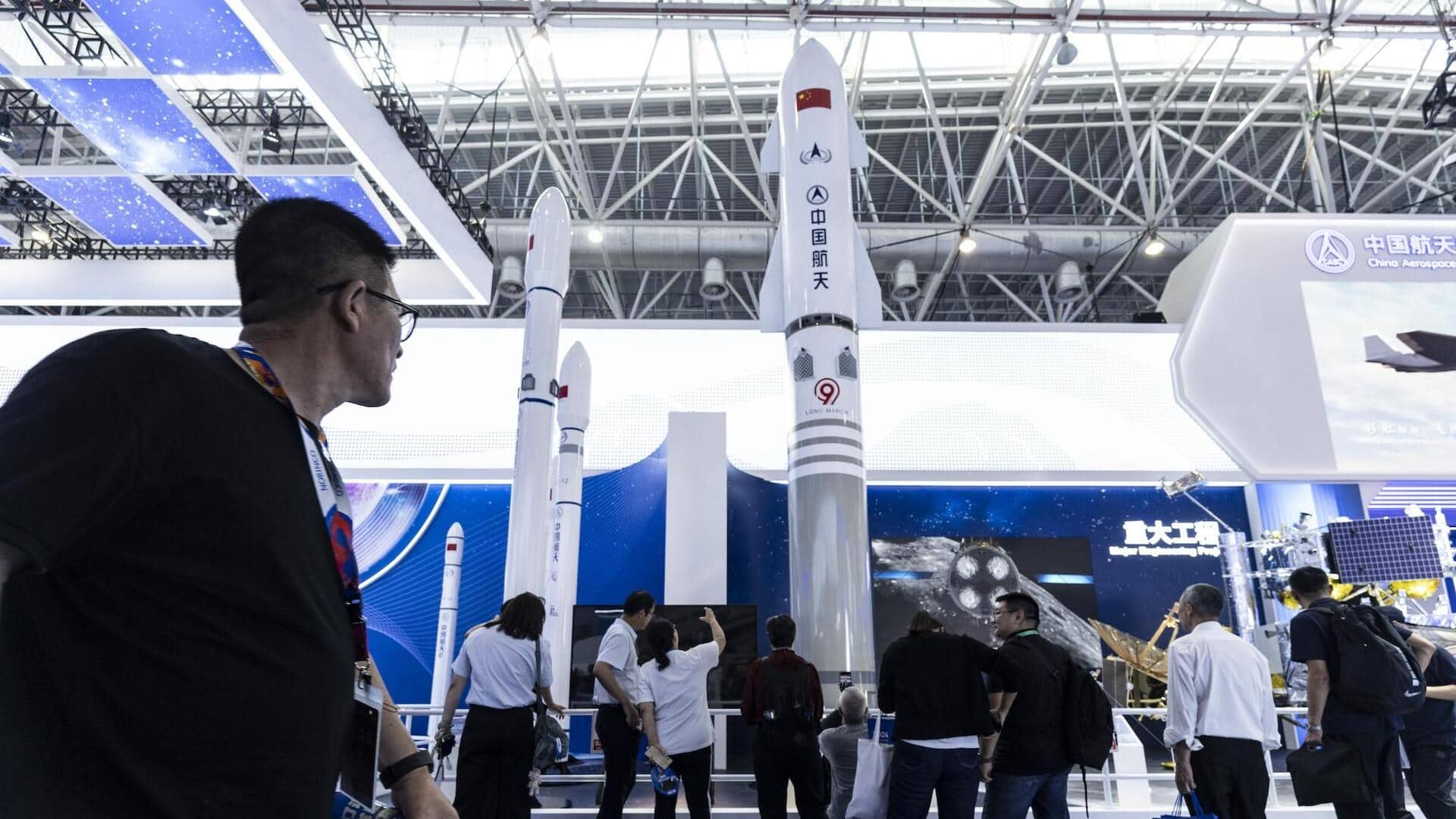
China could surpass US in space race within 10 years
What's the story
A new report by Arizona State University research analyst Jonathan Roll has raised alarms over the rapid progress of China's space program. The study, titled "Redshift," highlights how China is fast-tracking its commercial and civil space activities. Funded by the US-based Commercial Space Federation, the report warns that these developments could pose a threat to similar efforts in the US.
Advancements
China's space ambitions
The report notes that China is not just trying to catch up with the US but is also setting the pace in space exploration. It cites a 2014 Chinese government decision, "Document 60," which allowed private companies to license government technology for building civilian space infrastructure. In return, these entities must share new tech with the military when ordered.
Growth
Competing with SpaceX
The report highlights a massive increase in annual investment for Chinese commercial space activity, from $164 million in 2016 to $2.86 billion last year. China now has six operational spaceports and is expanding its ground systems to compete with SpaceX and other international launch competitors. Over a dozen private launch companies have raised more than $3 billion since 2020, many developing medium-lift vehicles similar to Falcon 9.
Expansion
Expanding influence and infrastructure
China's "Silk Road" initiative has resulted in over 80 international space projects, including satellite manufacturing and ground stations. This has diminished US influence in the sector. The Tiangong space station is set to become the world's primary hub for low-Earth orbit activity after the International Space Station (ISS) retires in 2030. Unlike NASA's delayed Artemis program, China is meeting milestones on its lunar and Mars exploration roadmap.
Collaboration
Regional hubs and acceleration
China has established regional hubs in cities like Shanghai, Beijing, Chengdu, Xi'an, Guangzhou, and Jinan to foster collaboration among academic, government, and private researchers. This is part of the country's broader strategy to accelerate its space program. "The key takeaway here is that there is an acceleration," said Dave Cavossa from the Commercial Spaceflight Federation. He warned that if the US doesn't act soon enough, China could surpass it in the next five to 10 years.
Strategy
What can the US do?
Cavossa stressed that the US should focus on its strengths, especially in the commercial space sector, where private capital and ideas are driving new advances. He praised an executive order signed in August, aimed at streamlining launch licensing and regulation. However, he also cautioned against cutting back on commercial satellite communications or remote sensing data buys, which could hinder progress in these areas.